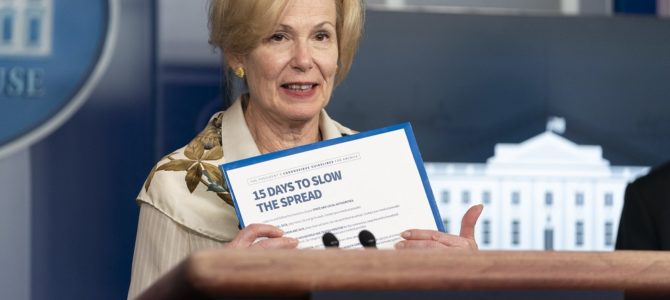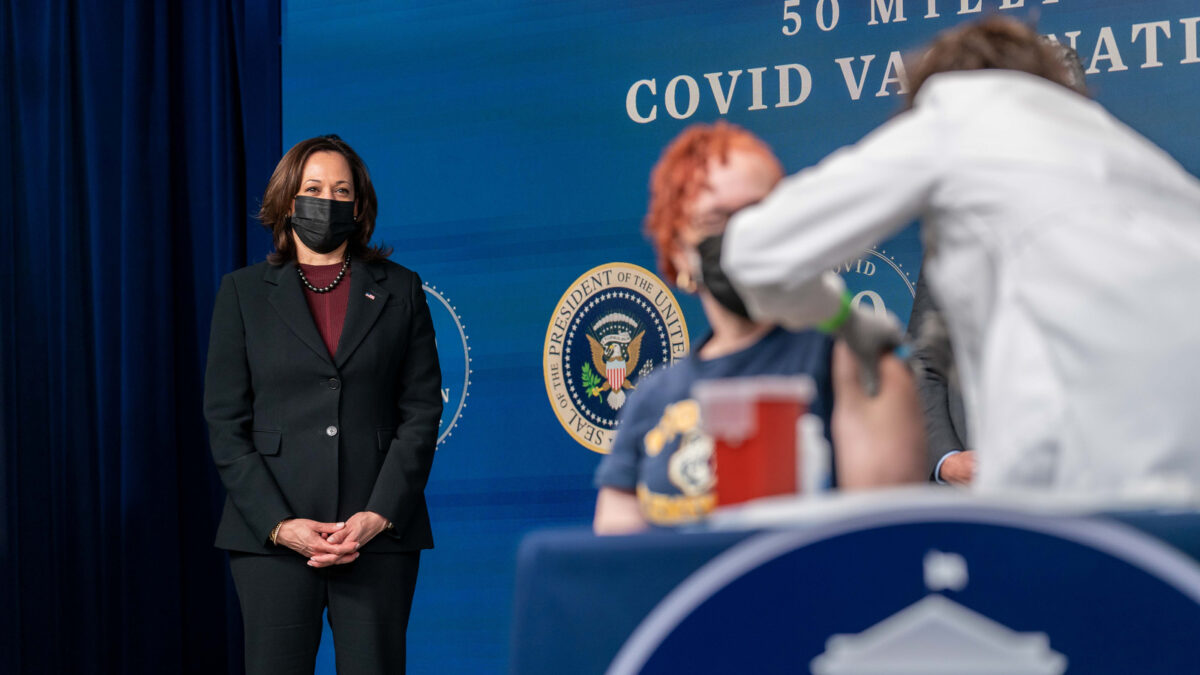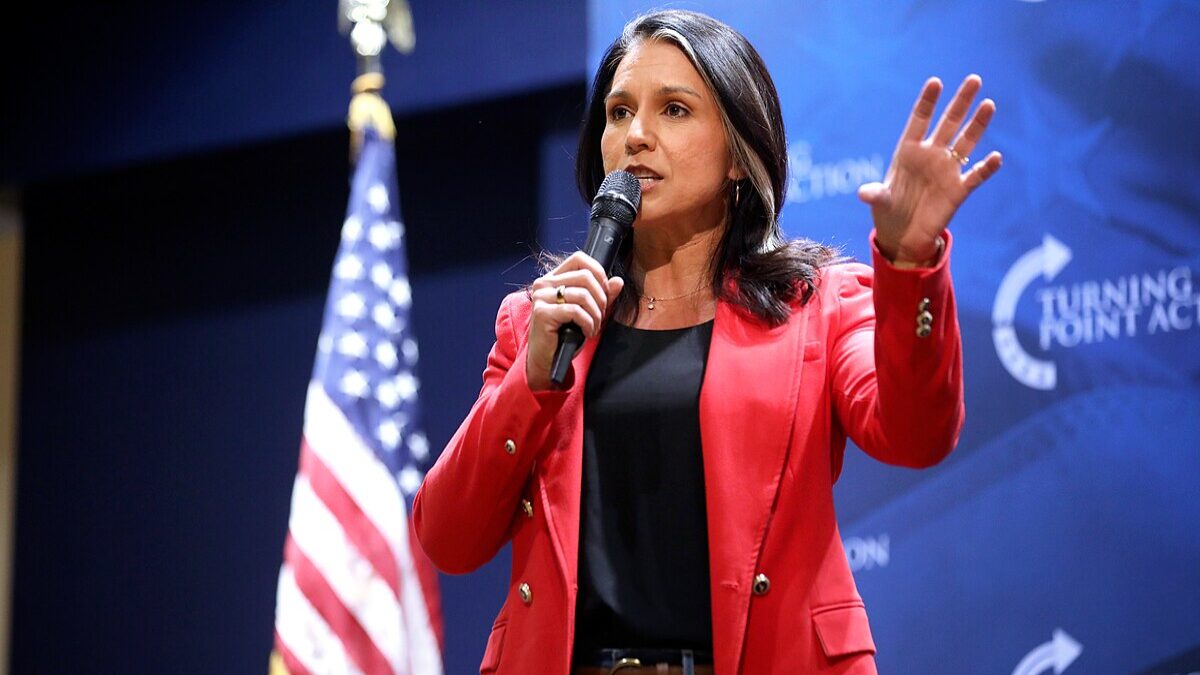
The resignation of Dr. Deborah Birx following revelations that she violated government recommendations on social distancing is the latest example of people in high places disregarding the rules they make for the rest of us. From the beginning of the pandemic, when social distancing rules were given the force of law, some politicians — including those who imposed them — have chosen not to follow them.
Hypocrisy in high office is nothing new. But when government officials break COVID rules, they are not just showing the country that they are personally dishonest; they are giving a doubtful public the impression that the rules are not as important as they say.
Faced with declining trust across institutions, high-ranking scofflaws make the problem worse when they give people tangible proof that they are not to be trusted. That makes it harder to convince people to sacrifice to stop the spread of the coronavirus.
It also causes people to lose trust in the system as a whole, trust that is essential to a functioning republic. Politicians’ hypocrisy does not just undermine their personal credibility, it damages the already fragile system of trust that makes society function.
The Immediate Harm Is To Reputation
If there were only scattered incidents of politicians bending the rules, we could chalk it up to just a few bad apples. But we are seeing a system-wide double standard in which our political leaders are perfectly willing to shut down regular people’s lives and livelihoods but unwilling to endure the slight inconveniences those same rules impose upon them.
The most notorious examples come from California, where Gov. Gavin Newsom has imposed some of the nation’s most severe lockdown rules. Those rules were not enough to keep Newsom and a large party of unmasked, well-connected friends from dining at French Laundry, a high-end restaurant in Napa County.
Nor were the restrictions on barbers and hairdressers enough to keep House Speaker Nancy Pelosi, D-Calif., from visiting her usual salon in San Francisco, also maskless. Ordinary Californians might have to use a Flowbee and order take-out, but these are not sacrifices that state and federal officeholders are willing to share.
The special exemptions extend beyond politicians, too. Favored industries are also treated differently than disfavored ones in the new command-style economy. Angela Marsden, owner of the Pineapple Hill Saloon in Sherman Oaks, California, went viral when she broadcast a video of the movie company offering its staff outdoor dining in the same parking lot where her business was denied the same opportunity. The lockdown laws are essential, we are told, but not so essential as to get in the way of a Hollywood production.
California is not the only state where politicians are building a neo-feudal world of special rules for privileged favorites. John Davidson has catalogued the growing list already and accurately described the contempt for the public reflected in it. Mayors of Chicago, Houston, Philadelphia, and Washington, governors of New York and Illinois, all have imposed draconian restrictions and flouted them the moment they became inconvenient. How can they expect average citizens to behave any differently?
Faith In The Medical Establishment Is Also Harmed
And that is a real problem. If damage to their personal reputations is the immediate problem — and the only problem they seem to care about — the intermediate issue is the damage being done to the medical and scientific establishment. A politician who has an affair does not cause us to doubt the institution of marriage, but one who piously preaches the new rules of social distancing while openly breaking them does cause considerable head-scratching among those who think the rules may be wrong.
Perhaps the most egregious example of this emerged just before Thanksgiving. Mayor Steve Adler of Austin implored residents “to stay home if you can,” adding ominously that “we may have to close things down if we are not careful.” But that need for caution was just for other people: the mayor was broadcasting his message from Cabo San Lucas, Mexico, where he was vacationing with family and friends.
Most non-political experts in public health agree that social distancing will reduce the spread of this plague, and politicians are right to tell people to exercise caution. Even in places without the harsh lockdown practices of California, most of our elected officials are urging people to act responsibly.
But when some of those politicians, including those most apt to use the government’s monopoly on force to compel our obedience, turn around and disregard those warnings themselves, it makes doubtful people think the whole thing is fake. Decreasing trust in the medical establishment will not end with this epidemic. Once it is lost, that trust will be difficult to rebuild. Politicians’ reckless actions will cause greater public health troubles down the road.
Long-Term Effect Is To Destroy Trust
The effect of hypocrisy will not even be confined to the medical and scientific establishment. Seeing politicians break their own rules constantly has eroded faith in government and elites altogether.
Trust in government and in institutions generally has been declining in America for decades. In his recent book, “Trust in a Polarized Age,” professor Kevin Vallier explains that “falling political trust makes it hard to form effective public policy, can threaten democratic government and political stability, and can generate excessive inequalities of power, corruption, and violations of basic rights.” Society requires trust, and blatant hypocrisy at the top destroys it.
Declining trust is not new, but the coronavirus has exposed the problems of an increasingly low-trust society. The reason we have populist movements on the left and the right, and the reason they are gaining adherents every year, is because those whom we once trusted to manage our government, industry, schools, and other institutions are failing us publicly and often. In 2020, they have done so more blatantly and unapologetically than ever.
Public crises used to mean shared sacrifice, and public leaders used to be expected to set an example. In the oil crisis of the late 1970s, President Jimmy Carter told Americans to use less fuel — then did it himself by lowering the thermostat at the White House. The speech was seen mostly as one more bit of bad news in a failing presidency, but compared to our 21st-century leaders, Carter looks like a moral giant. He practiced what he preached, and the people could trust that whether they agreed with his proposals or not, their president did not think himself above the law.
Some of that spirit would be welcome today. We have been told for nearly a year now that we must sacrifice. Politicians who believe that must lead by example. If anything, they should sacrifice more than the rest of us.
If the governor of California thinks dining out is dangerous, he should eat all of his meals at home. If the mayor of Austin thinks travel should be avoided, he should not even go as far as Galveston, let alone Cabo San Lucas. As vaccines become available, officeholders should wait their turns like ordinary citizens instead of trying to jump the line.
There are many benefits to public office, but there must be costs, too. Simply doing what they tell others to do will build confidence in the social distancing rules and restore some small measure of trust in government.
Our elected leaders are not a class apart from the citizenry. They are our servants, and for this republic and this society to function, they must remember it.









